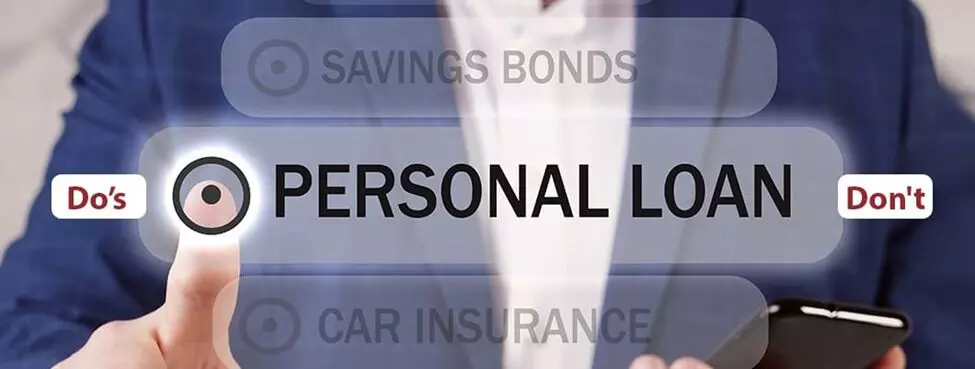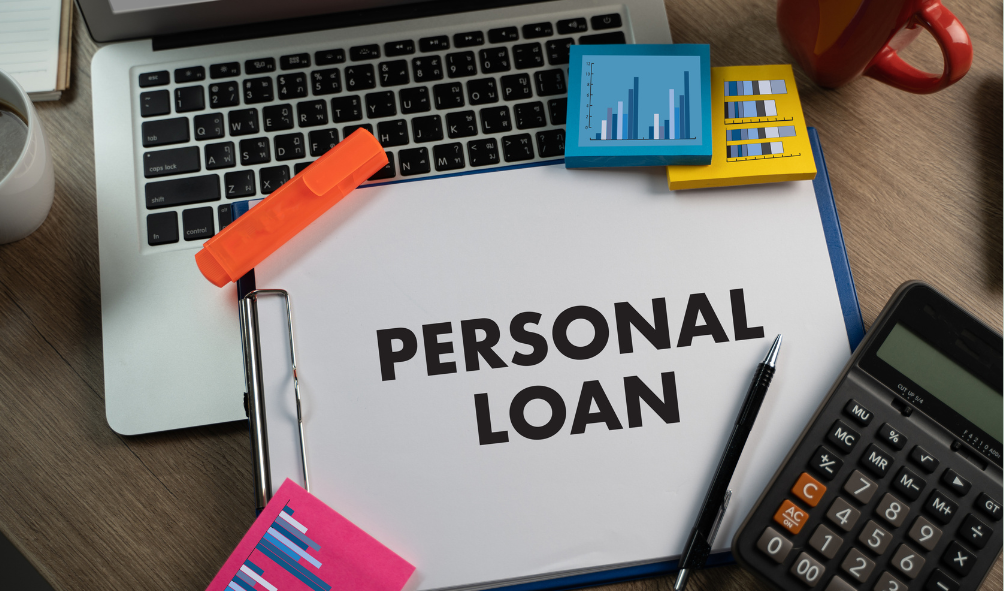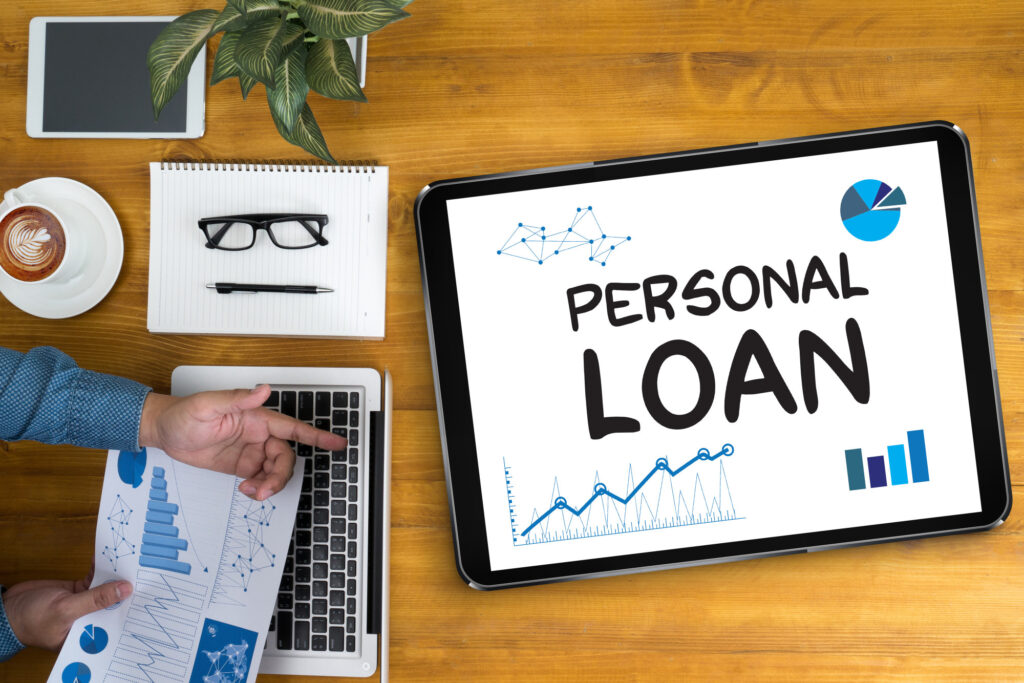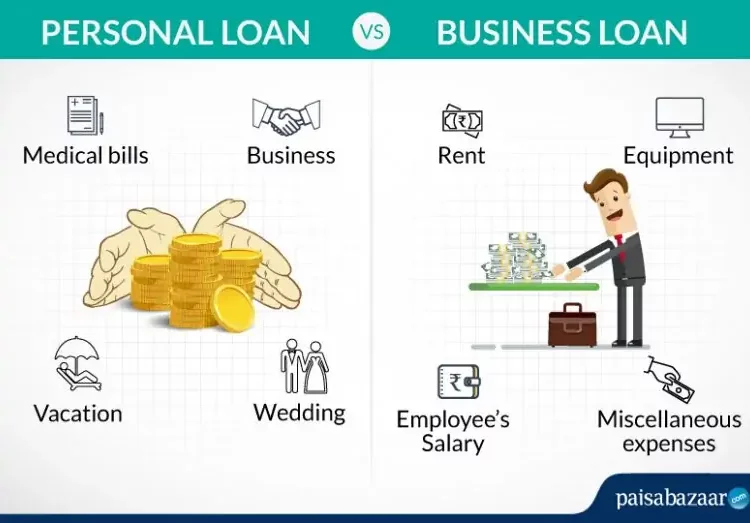Personal loans are a popular form of borrowing that offers individuals access to funds for a variety of purposes. Whether it’s for debt consolidation, home renovations, or unexpected expenses, personal loans provide flexibility in terms of repayment and borrowing amounts.
Toc
In this guide, we will dive into the details of personal loans, including how they work, their pros and cons, and tips on how to get the best deal. By the end of this guide, you will have a better understanding of personal loans and be able to make an informed decision when considering one.
Introduction

Personal loans have become an increasingly popular financial tool for individuals looking to manage expenses, consolidate debt, or fund significant purchases. This comprehensive guide delves into everything you need to know about personal loans, including their benefits, types, application process, and tips for choosing the right loan.
What is a Personal Loan?
- Definition: A personal loan is typically an unsecured loan that does not require collateral, meaning you do not have to put up any assets such as your home or car to secure the loan.
- Uses: Personal loans can serve various purposes, including debt consolidation, home improvement projects, medical expenses, education costs, travel funding, and unexpected emergencies. Their versatility makes them a valuable option for many borrowers.
- Repayment: Personal loans are repaid in fixed monthly installments over a set period, typically ranging from 1 to 7 years. These payments include both the principal amount borrowed and interest accrued.
Types of Personal Loans
Understanding the different types of personal loans can help you choose the best option for your financial needs.
- Fixed-Rate Loans: These loans come with a stable interest rate and consistent monthly payments, making it easier for borrowers to budget and plan their finances over time.
- Variable-Rate Loans: With these loans, the interest rate may fluctuate based on market conditions, which can lead to lower initial payments but potential increases in the future.
- Debt Consolidation Loans: These loans are specifically designed to combine multiple debts into a single loan, often with a lower interest rate, simplifying payments and potentially reducing overall debt costs.
- Secured Loans: Unlike the unsecured personal loans mentioned earlier, secured loans require collateral, making them less risky for lenders and potentially offering lower interest rates.
The Role of Personal Loans in Financial Planning
Personal loans can play an essential role in overall financial planning. They allow individuals to tackle immediate financial needs without depleting savings. By consolidating debt, borrowers can streamline their payments and potentially reduce interest costs, creating a more manageable financial situation. However, it’s crucial to carefully consider your financial goals and budget before taking out a personal loan.
Pros and Cons of Personal Loans

Personal loans offer various benefits, but they also come with some drawbacks that borrowers should consider before applying.
Pros
Flexibility in terms of borrowing amounts and repayment periods
Unrestricted use of funds without any specific purpose or restrictions
No collateral required for most personal loans, making it accessible to a wide range of borrowers
Potentially lower interest rates compared to credit cards or other forms of borrowing
Cons
Personal loans may come with higher interest rates than secured loans due to the lack of collateral.
Borrowers with a poor credit history may have difficulty getting approved or may be offered higher interest rates.
Missing payments or defaulting on a personal loan can negatively impact your credit score and make it harder to access future credit.
How to Apply for a Personal Loan:

Applying for a personal loan can seem daunting, but knowing what to expect can simplify the process.
Credit Score
Your credit score plays a crucial role in the personal loan application process. Lenders use this score to assess your creditworthiness and determine the interest rate and loan amount you may qualify for. Generally, a higher credit score indicates a lower risk for lenders and can result in more favorable loan terms. It’s advisable to check your credit report for errors and rectify any discrepancies before applying, as this may improve your score and increase your chances of approval. Additionally, maintaining a good credit score through timely payments on existing debts can enhance your overall financial profile, making you a more attractive borrower.
- https://smartlearnnetwork.com/how-to-qualify-for-a-business-loan-tips-for-small-businesses/
- https://smartlearnnetwork.com/how-to-use-business-loans-for-maximum-growth-and-profitability/
- https://smartlearnnetwork.com/business-loans-vs-personal-loans-for-entrepreneurs-which-is-right-for-you/
- https://smartlearnnetwork.com/the-impact-of-business-loans-on-your-companys-financial-health/
Documentation Needed
When applying for a personal loan, you will need to prepare several documents to support your application. Commonly requested items include proof of income, such as recent pay stubs or tax returns, identification documents like a driver’s license or passport, and information about your current debts and expenses. Some lenders may also require bank statements to verify your financial history. Having these documents ready can streamline the application process and help ensure that you present a complete and accurate financial picture to the lender.
Shopping Around for the Best Deal
Just like any other financial product, it’s essential to shop around and compare offers from different lenders before settling on a personal loan. Doing so can help you find the best interest rates, repayment terms, and fees that align with your needs and budget. Keep in mind that submitting multiple applications within a short period may negatively impact your credit score. Instead, consider using pre-qualification tools offered by some lenders to get an idea of the rates and terms you may qualify for without affecting your credit score.
Tips for Choosing the Right Personal Loan

Here are some key considerations to keep in mind when deciding on a personal loan:
- Compare interest rates, fees, and repayment terms from different lenders.
- Consider your credit score and how it may affect the loan options available to you.
- Think about your financial goals and choose a loan amount and term that align with them.
- Read the fine print carefully to understand any potential additional or hidden costs associated with the loan.
- Consider the reputation of the lender, including customer reviews and ratings.
Compare Interest Rates
When considering personal loans, one of the most important factors to evaluate is the interest rate. Different lenders may offer varying rates based on your credit score, loan amount, and repayment term. It’s advisable to request quotes from multiple lenders and compare these rates side by side. Keep in mind that even a small difference in interest rates can significantly impact the total amount you will pay over the life of the loan. Look for loans that offer competitive rates and be cautious of any hidden fees that might offset the benefits of a lower rate.
Review Loan Terms
In addition to interest rates, the terms of the loan—including repayment duration, fees, and any prepayment penalties—are vital to your decision-making process. A loan with a longer repayment term might offer lower monthly payments, but it could also lead to paying more interest over time. Conversely, shorter terms may come with higher payments but allow you to pay off debt more quickly. Weigh these factors carefully to find a loan structure that fits your financial situation and repayment capabilities.
Check Lender Reputation
Before committing to a personal loan, it’s important to research the lender’s reputation and customer service. Look for reviews and ratings from previous borrowers to gauge their experiences. A lender with a strong customer service record can provide support throughout the loan application process and beyond, ensuring that any questions or concerns are addressed promptly.
Understand the Fees
Many personal loans come with various fees that can add to the overall cost of borrowing. Common fees include origination fees, application fees, and late payment fees. Be sure to read the fine print and understand all applicable fees associated with your loan. This diligence will help you avoid any unexpected costs and ensure that you choose the most cost-effective loan option.
Consider the Impact on Your Finances
Finally, before finalizing your loan, reflect on how this additional debt will affect your overall financial picture. Ensure that you can comfortably manage monthly payments within your existing budget. It may be helpful to create a budgeting plan that incorporates the loan payments to ensure you remain on track financially while achieving your goals.
FAQs About Personal Loans

What Credit Score is Needed for a Personal Loan?
The credit score required for a personal loan can vary significantly depending on the lender and the type of loan you are applying for. Generally, most lenders prefer a credit score of 680 or higher for unsecured personal loans. However, some lenders may consider applicants with scores as low as 600, albeit usually with higher interest rates. It is essential to check your credit report and score before applying, as this will not only inform you of your eligibility but also help you identify any issues you may need to address to improve your chances of approval. Additionally, many lenders offer pre-qualification options, allowing you to see potential loan terms without impacting your credit score.
Can I Use a Personal Loan for Business Expenses?
While personal loans are typically used for personal expenses, they can also be employed for certain business-related purchases. However, it’s crucial to consider that using a personal loan for business expenses may impact your personal credit score and finances. Borrowers should be cautious, as blending personal and business finances can complicate financial management and tax filings. If you’re regularly investing in a business, it may be wise to explore business loans designed specifically for enterprise financing needs.
Are Personal Loans Tax Deductible?
Generally, personal loans are not tax-deductible, unlike certain types of loans such as mortgages or student loans. The IRS does not allow individuals to deduct interest paid on personal loans when filing their taxes. However, if the funds from the loan are used for qualified expenses, like home improvement that increases property value, you might want to consult a tax professional for guidance. Always consider how your loan use fits into your overall financial picture and tax strategy. Overall, personal loans can be an effective financial tool for achieving your goals and managing expenses. With careful consideration of these tips, you can select the right loan option and lender to meet your unique needs. Remember to research and compare offers from multiple lenders before making a decision, and always read the fine print carefully to avoid any surprises. And finally, stay mindful of how taking on additional debt will impact your financial future. With proper planning and responsible borrowing habits, personal loans can help you achieve your goals while maintaining financial stability.
Conclusion

In conclusion, navigating the world of personal loans requires careful thought and consideration to ensure you make informed decisions that align with your financial goals. Start by assessing your individual needs and circumstances, including how much you need to borrow and your ability to repay the loan. After that, thoroughly research potential lenders and loan options available in the market.
As you explore different loans, remember to factor in all aspects—interest rates, terms, fees, and lender reputation—before making your final choice. It’s crucial to feel confident in your understanding of the loan agreement and its implications on your long-term financial health. By taking the time to evaluate your options, you can secure a personal loan that not only meets your immediate financial requirements but also contributes positively to your overall financial strategy. Ultimately, a well-chosen personal loan can serve as a stepping stone towards achieving your life’s ambitions, whether that’s funding a home improvement project, consolidating debt, or covering unexpected expenses.
References
- Investopedia: Personal Loans https://www.investopedia.com/terms/p/personal-loans.asp
- NerdWallet: How to Get a Personal Loan https://www.nerdwallet.com/article/loans/personal-loans/get-personal-loan
- The Balance: Understanding Personal Loans https://www.thebalance.com/personal-loans-315572
- Forbes Advisor: Credit Score Needed For A Personal Loan https://www.forbes.com/advisor/personal-loans/credit-score-needed-for-a-personal-loan/?sh=1fa111c7f697
- IRS Publication 936, Home Mortgage Interest Deduction https://www.irs.gov/publications/p936#en_US_2019_publink1000229990.










